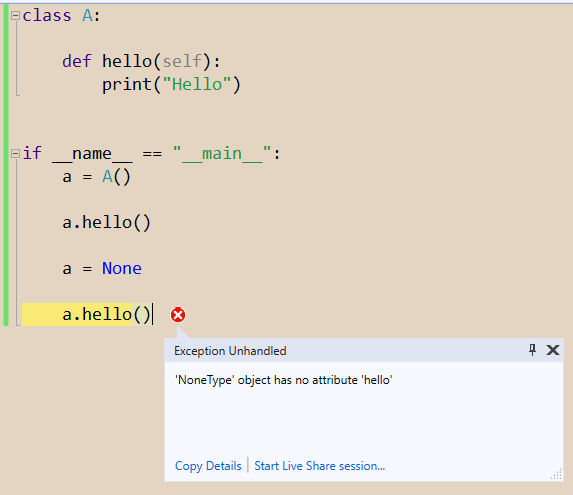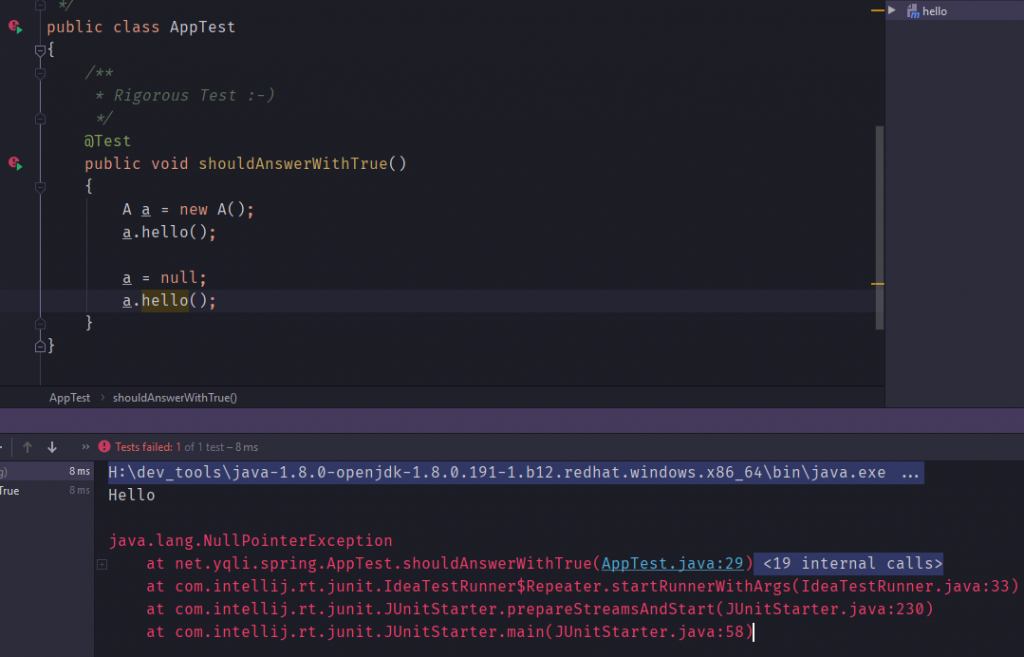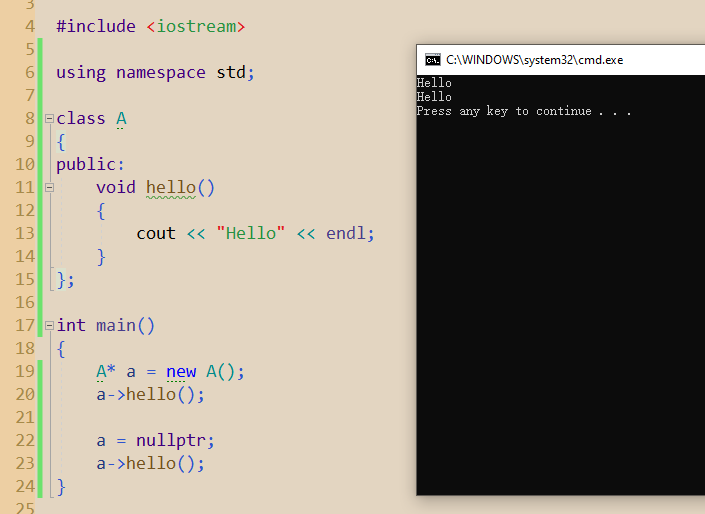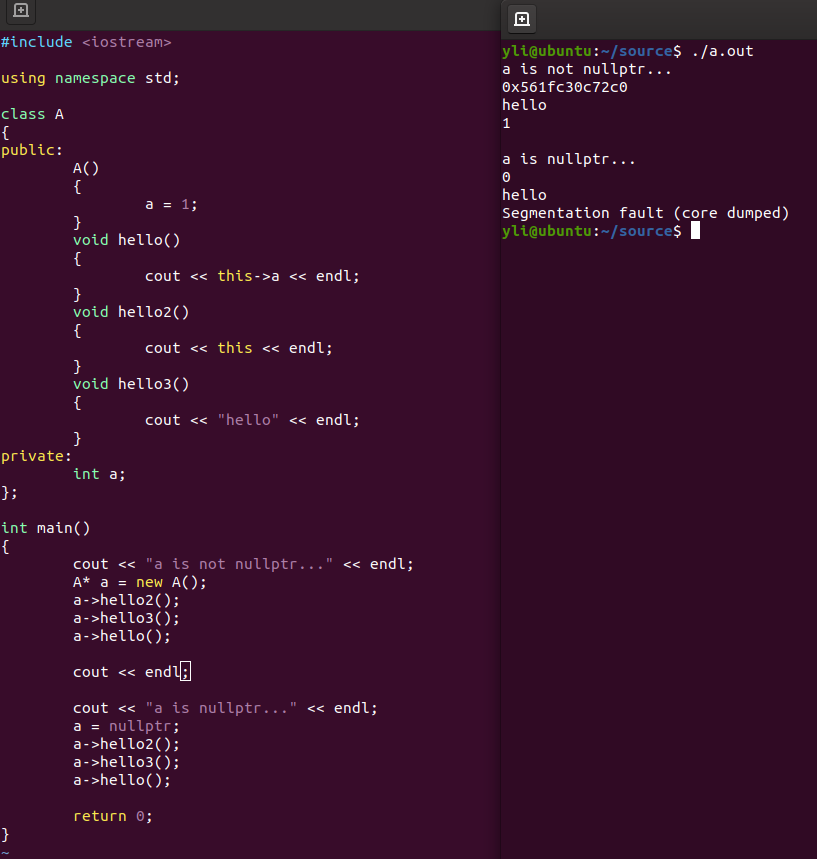As a Java/Python developer for about 10 years, in my mind, invoking a member function from a raw nullptr, there should have always exceptions, as the following shows.


Maybe you think why I discuss about this naive question. Since recently I found, it’s may not be true for C++ and it depends on how the C++ class defines.
Take a look at the following code written by C++ and execution results.

Surprisingly, the code was executed correctly! It’s tested by VC 2019, GCC 4.8.4/7.3.
I never noticed this but after more time thinking, you may understand the reason. It’s because there is no member field de-referenced in C++ class of “A”.
Let me explain it simply. The function A::hello() will be renamed (there is a full set of naming convention) and compiled into a kind of a C function. And the parameter of pointer of “this” will be added into the function (not that simple, but you can understanding like that). So A::hello() will be compiled to a function like _ZN1A5helloEv(A* this). When you call “a->hello()”, actually, it looks like “_ZN1A5helloEv(a)”. Calling a C function will not cause segment fault, but de-referencing will.
The following code snippet will give you better understanding.

In OOP, this kind of class “A” is not useful. No member fields means a object has no properties. For this case, you should use static function and invoking the function as a class function.
But this tricky behavior is good for us to understand how C++ language works.


